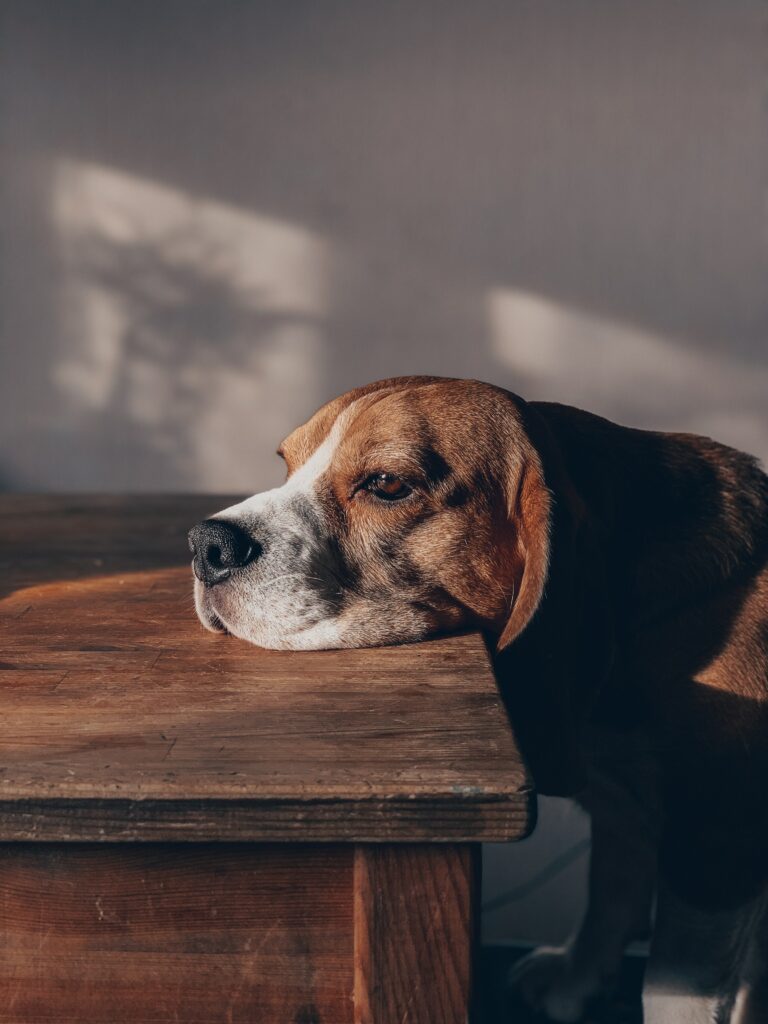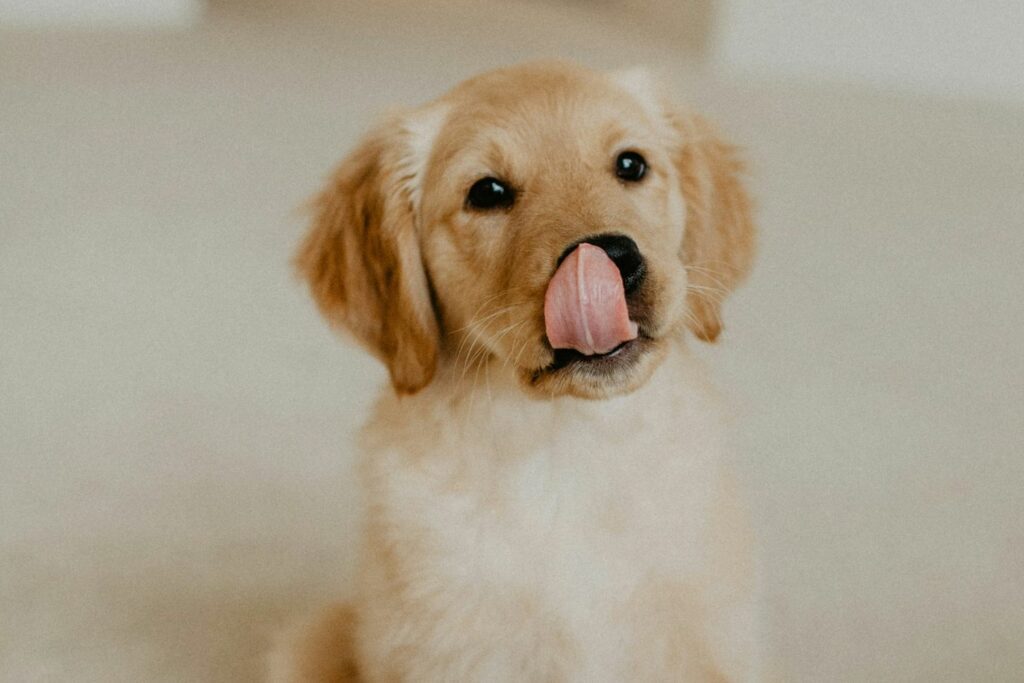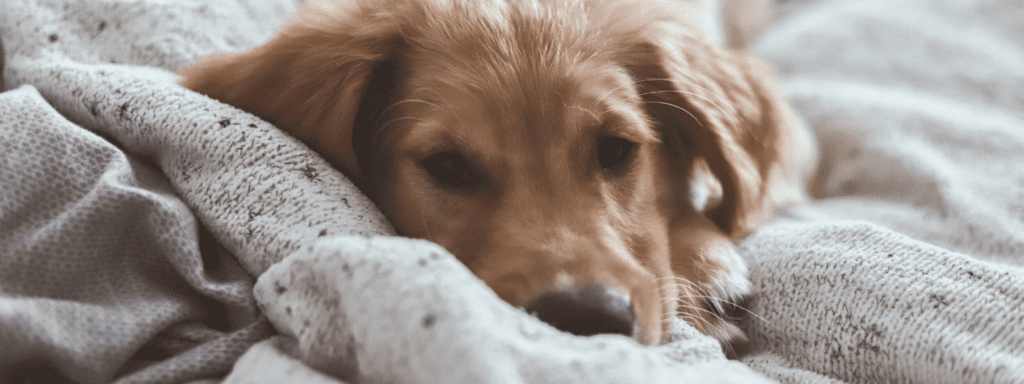Puppy With Diarrhoea
 Synne Hemsen Berg
Synne Hemsen Berg
It’s not uncommon for puppies to get a case of the runs, especially since they’re curious little explorers who nibble on just about anything they find during their outdoor adventures or in the yard. Even though diarrhoea is not always cause for alarm, it’s important to keep an eye on this, as it could be a sign of something more serious, like parvovirus. Diarrhea can lead to dehydration, so keep a close watch on your furry friend, no matter how old they are. In this blog, we will cover common causes of diarrhoea, signs that the runs are serious and some home remedies to get your pup on the mend.
Causes of Diarrhoea in Puppies
Diarrhoea can be a bit of a mystery – it could be anything from a serious bug to just a stressful day causing those tummy troubles. Therefore, understanding what might be upsetting your puppy’s stomach is the first step in ensuring their well-being. If you think your puppy might have gobbled up something they shouldn’t have (like a sneaky snack from a poisonous plant, household cleaners, or some human meds), it’s time to ring up your vet, pronto! The same goes if you’re worried about something really scary like parvovirus. Here’s a quick rundown of what might be stirring up that puppy belly:
- Dietary Indiscretions: Puppies are inherently curious and often eat things they shouldn’t. This can range from table scraps to inedible objects like toys or trash, leading to what’s affectionately known as “garbage gut.”
- Sudden Diet Changes: Puppies have sensitive digestive systems. A rapid switch in their food can upset their stomachs, causing diarrhoea. It’s best to transition to new foods gradually.

- Parasites: Common in young dogs, parasites like roundworms, giardia, and coccidia can wreak havoc on a puppy’s digestive system. Regular deworming and faecal exams are crucial for prevention and detection.
- Infections: Viral and bacterial infections can lead to diarrhoea in puppies. Parvovirus, a particularly dangerous virus, is a common and serious cause. Vaccinations are key to prevention and most puppies should be fully vaccinated at about 16 weeks.
- Stress: Just like humans, puppies can experience stress-induced diarrhoea. Changes in their environment, such as moving to a new home or being separated from their littermates, can trigger digestive upset.
- Allergies or Intolerances: Some puppies may have allergies or intolerances to certain food ingredients, leading to diarrhoea. Identifying and removing the offending ingredient from their diet can resolve the issue.
- Overeating: Puppies sometimes don’t know when to stop eating, which can overload their digestive system and result in diarrhoea.
- Toxic Substances: Accidental ingestion of toxic substances, including certain plants, human medications, or household cleaners, can cause severe diarrhoea and require immediate veterinary attention.
When To See Your Vet
If your dog’s diarrhea sticks around for more than a day, it’s time to consider a vet visit. Pay close attention to their overall demeanor too – if they’re acting more tired than usual, turning their nose up at food, or not drinking enough water, these could be red flags. Also, keep an eye out for more concerning signs like diarrhea that’s black, bloody, or very smelly, as these can indicate more serious issues. Puppies, older dogs, and those with existing health conditions are especially vulnerable and should see the vet sooner rather than later. Remember, it’s better to be safe and get your furry friend checked out to keep them wagging happily!

The following symptoms require you to see a veterinarian:
- Diarrhoea lasting more than 24 hours
- Very watery faeces
- Blood in stool (red or black in colour)
- Fever (normal temperature is between 37.5 and 39 degrees – measured in the rectum)
- Lethargy
- Vomiting
- Reduced appetite
- Lack of thirst
Treating Diarrhoea at Home
Treating diarrhea in puppies at home involves a careful approach to ensure their delicate systems are nurtured back to health. Start by offering a bland diet; plain boiled chicken and white rice can be gentle on their stomachs. Make sure to keep portions small and frequent, easing their digestive tract back into normal function.
Hydration is key, so encourage your puppy to drink plenty of clean water. Dogs normally drink 40 – 50ml of water per kilogram of body weight per day and with diarrhoea, this will double. You can use a small syringe or pipette to feed them clean water. Adding some homemade bone broth or water to their food can also help hydrate. Aid with their recovery by adding electrolytes and probiotics to their food. You can find dog-friendly products at your local pet store.
It’s essential to keep their environment clean and stress-free to aid their recovery. A quiet, comfortable resting area can help them feel secure and relaxed. Monitor their stool and overall behavior closely during this time. If you see no improvement within 24 hours or if symptoms worsen, it’s time to consult your vet. Remember, while home remedies can be helpful, they’re not a substitute for professional veterinary advice, especially for young pups who can quickly become seriously ill.
Food and Supplements for Mild Diarrhea in Puppies
- Yoghurt: A small spoonful of plain, yoghurt can introduce beneficial bacteria into your puppy’s gut, aiding in digestion. Ensure the yoghurt is free from xylitol, a sweetener toxic to dogs.
- Pumpkin: Pureed pumpkin (not pie filling with added sugars and spices) is high in fibre, which can help bulk up your puppy’s stool. A small amount mixed into their food can aid digestion. See our recipe here.

- Plain White Rice: Cooked white rice is bland and can help bind your puppy’s stool. Ensure it’s well-cooked and served plain, without any butter, spices, or sauces.
- Probiotics: Specific probiotic supplements designed for dogs can support a healthy balance of gut flora, aiding in digestive health and recovery.
- Boiled Potatoes: Plain, boiled potatoes without any added ingredients can be a good option. Make sure they’re cooked thoroughly and mashed without milk or butter.
- Charcoal Tablets: Charcoal binds to several harmful substances and prevents the body from absorbing them, such as bacterial toxins, chemical toxins, poisonous plants and medicines (Charcoal tablets should not be combined with antibiotics as they may reduce the effect of the antibiotic).
- Bone Broth: A gentle and nutritious option, bone broth (made from boiling bones to extract the marrow and nutrients) can be soothing for your puppy’s gut, providing hydration and electrolytes. We have created a recipe for homemade bone broth.
Always consult your veterinarian before trying home remedies and should they not help then consult your vet.
Preventing Diarrhea in Puppies
Keeping your puppy’s tummy happy and preventing diarrhea requires a mix of vigilance, good habits, and a pinch of preventive care. Here are some key strategies to help your little companion steer clear of digestive woes:
1. Mindful Feeding: Stick to a consistent, high-quality diet formulated specifically for puppies. Sudden changes in their diet can upset their sensitive digestive systems, so any new food should be introduced gradually, over a period of a week or so.
2. Watchful Exploration: Puppies are curious by nature, often tasting first and asking questions later. Keep a close eye on your furry explorer during walks and playtime, ensuring they don’t ingest harmful substances or foreign objects that could lead to gastrointestinal distress.
3. Parasite Prevention: Regular deworming and parasite control are crucial, as worms and other parasites are common causes of diarrhea in puppies. Your vet can recommend a suitable prevention schedule based on your puppy’s age and lifestyle.

4. Clean Water, Clean Bowls: Always provide fresh, clean water to keep your puppy well-hydrated and less tempted to drink from puddles or other potentially contaminated sources. Additionally, keeping their food and water bowls clean can prevent the growth of bacteria that could cause upset stomachs.
5. Stress Management: Just like humans, puppies can experience stress-related digestive issues. Keeping their environment stable, introducing new experiences slowly, and providing plenty of love and reassurance can help keep their stress levels (and their stomachs) in check. Remember that your puppy can pick up on your stress too.
6. Vaccinations: Many serious diseases that can cause diarrhoea, like parvovirus, are preventable through vaccination. Ensure your puppy’s vaccination schedule is up-to-date to protect them from these threats.
7. Regular Veterinary Check-Ups: Routine vet visits allow for early detection and prevention of issues that could lead to diarrhea. These check-ups are also a great opportunity to discuss your puppy’s diet, lifestyle, and any concerns you might have.
By weaving these practices into your daily routine, you can greatly reduce the chances of your puppy encountering diarrhoea-causing troubles, paving the way for a healthy, joyful growth journey.
Conclusion
Dealing with a puppy’s diarrhea can be a bit of a messy journey, but it’s all part of the paw-renting adventure. Remember, while those runny tummy troubles can often be managed with some gentle home care and lots of love, keeping an eye on the signs and knowing when to call in the pros is key. Luckily, most cases are nothing to lose sleep over. Keep an eye on those little signs and symptoms, though, and never hesitate to call in the vet if things seem off. Your vet’s always there to help steer you in the right direction. Here’s to happy, healthy pups and lots of tail-wagging adventures ahead!

